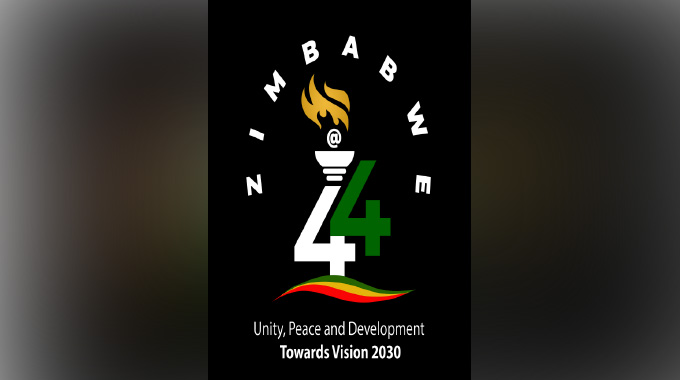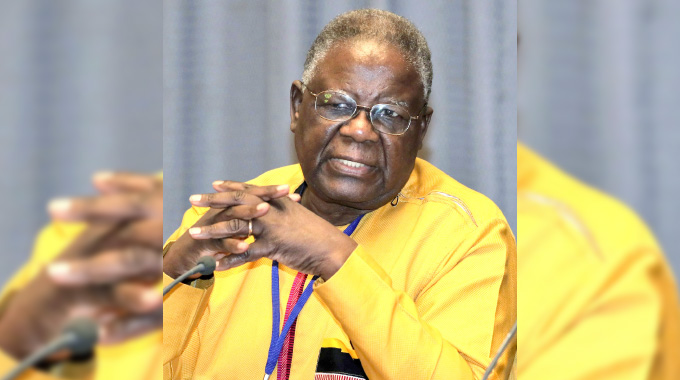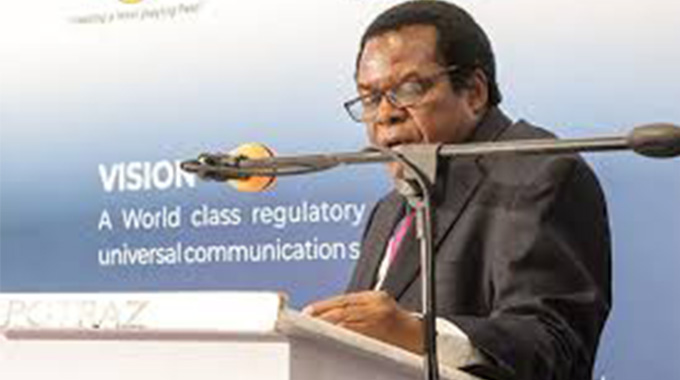Empower disadvantaged children

Pages: 188
ISBN: 978-0-7974-3928-2
MOTHERS looking after their children with special needs have spoken about how you can help them.
They spoke in interviews for the book chronicling their woes and the problems their children face when trying to lead a normal life which their disabilities allow. People are not interested in them and their families’ struggle to find fees for education which can make a difference in their life.
They need wheelchairs and hearing aids. Zimbabwe Women Writers have published what 28 mothers said in the book called In the Wake of Our Shadows. The book shows how you can help mothers to put a smile on the faces of their children needing food that could change their conditions.
Thabani was born to Siphilisiwe Siziba of Mawabeni, Gwanda, in 1999 with a gene which retarded his growth.
“I have spent a lot of money consulting doctors and taking him to hospitals, but it didn’t help,” said Siphilisiwe.
“The nurses didn’t show interest in the child when I went with him to the hospital. This made me give up trying to get help from the hospital.”
Early treatment is essential to stop the disability setting in and, it can prevent blindness and lack of hearing.
“Nurses said that there was nothing wrong with Thabani,” said Siphilisiwe. “He was vaccinated against polio which cause disabilities.”
The family does not have cattle or goats to sell and get money for Thabani to get special treatment and to go for physiotherapy.
“Some mothers told me to see a woman (name supplied) at Esigodini Clinic who had helped their children,” she said.
“She said that I had delayed bringing Thabani for treatment. It had taken me a long time to realise that he had problems.
“A doctor told me to keep stretching the affected parts of the body regularly. He didn’t refer Thabani to Mpilo for physiotherapy.”
Thabani is an intelligent Grade 3 pupil. Siphilisiwe added: “We do all sorts of things to find his school fees. Thabani loves soccer and athletics. His future is bright if he can finish his education.
“The problem is that we don’t have money as his siblings are also going to school. Their father is not working.”
Other children at school insult Thabani, but neighbours understand his condition.
“Children upset me when they refuse to play with Thabani and call him an outcast,” she said. “I tell their parents to tell their children to stop it.
“We don’t to get a regular supply of staple maize at the Grain Market Board depot. We don’t get enough for everybody when it becomes available.
“We want Thabani to get education as it guarantees him a bright future. I can sell birds at our market if I can get a sponsor to help me start rearing chickens.
“I encourage mothers to love their children in spite of what people say. Those children are their gift from God.” Another mother is not sure whether to put her daughter on the pill to protect her from becoming pregnant through rape.
“Kudzai might be raped on her way to school and when she is coming home,” said mother-of-three Thandiwe Ncube from Daramombe.
“A nurse advised me to put Kudzai on contraceptives. I’m a bit sceptical about it because they made the daughter of my sister with the same problem grow too big for her age.
“Unscrupulous men might take advantage of Kudzai if they know that she is using contraceptives. I tell her to walk with other girls when she is going to school. I tell her not to respond when boys call her.”
Thandiwe said the family of her husband did not insult her for having given birth to Kudzai. My worry is their indifference to the condition of Kudzai,” she said.
“It makes me wonder whether they know something about it which I don’t.
“They are not helping me to look after her.”
Vimbiso, young sister to Kudzai is showing similar signs and symptoms. Both of them will have to leave schools should they reach Grade 7 because of their condition, said their mother.
“Vimbiso has not yet started menstruating,” said Thandiwe. “But, she is aware of it. I wish my children can get something to do with their hands. I’m prepared to pay fees if they can find a place at a school teaching practical courses.
“I’m always thinking of what would become of them if I were to die before they have learnt to do something for themselves. I wish they can do sewing so that they can use the sewing machine I’m not using due to lack of materials. They need specialised training to be able to use that machine.
“My mind will rest if they can learn to sew and to knit and be able to raise money for their living using their hands. I urge women to learn to share their problems with others. They shouldn’t keep secrets like that to themselves.
“Nobody likes to have problems like that, but those who have them should accept them. There are many people with worse problems than theirs.
“You should show your child love and, you should laugh with the child all the time.”
Social scientists who compiled the book found out that stigma is the biggest problem facing mothers and their children. People are not interested in knowing how these children live. They expect other people to do that. The aim for coming up with the book is to make the reader aware of the problems and see how they can help children in their community to lead a normal life.
The editors express concerns at reports that health workers are ill-treating children when they seek treatment at state hospitals. That attitude has prevented mothers taking their children for early treatment which can make a difference to their disabilities.
Saziwe Chimbete, a widowed mother-of-five from Gutu, has seven-year-old son who is living with multiple disabilities. He needs a wheelchair. His condition makes it difficult for Saziwe to go to South Africa and buy goods that she would sell to raise money for feeding her family.
“From the time when my husband died in 1005,” said Saziwe, “I haven’t been able to travel anywhere. I don’t have money.
“The condition of Godknows makes it difficult for him to go to school. I can’t leave him with other women as he should eat at set times.
“I used to take Godknows to Masvingo for exercises when I could afford bus fare. This has made it difficult for me to take him to Jairos Jiri in Harare where the doctor said he should go.
“The exercises that he did at Morgenster Hospital helped to strengthen his bones. He was taught to hold on to objects when he wants to stand up.
“I could take Godknows to Bulawayo for treatment, if I can find a sponsor.
“The doctor who assessed the scan said his brain is normal.”
Saziwe is appealing for food which can help the bones of her son to strengthen. She does not have money to buy enough food.
Godknows would go to school if he can get a wheelchair. He becomes short of breath in cold weather.
“I would appreciate it if somebody can help me with money to buy medicine and food for my family,” said Saziwe.
“I encourage other women to accept the condition of their children. That will enable them to have the courage to look after their children with compassion and love.”
Martha Gadzirai from Chinhoyi looks after her grandson, Ngoni, who was born in 1993.
She believes that the fight that took place for inheriting the farm when her husband died was responsible for the condition of the young man.
“The parents of Ngoni might have tried to send him to school if they were still together,” said Martha.
“I can only manage to look after him and to give him food. I can’t afford school fees for him.
“I took Ngoni from his mother and his stepfather because of his condition. I survive on gardening and sometimes I cut thatch grass for sale.
“I don’t want to burden my daughter-in-law with the difficult tasks that Ngoni has to have everyday. She doesn’t deserve to carry out that punishment.”
Martha said Ngoni’s father abandoned him soon after he was born.
“His mother and stepfather come to visit,” said Martha. “My daughter hasn’t come to terms with the condition of her son.
“She is aware that she has given me a burden. I assure her that Ngoni will be all right as long as I’m alive.
“All these problems that Ngoni is facing are painful to me. My relatives don’t want to help me by taking Ngoni for treatment.” Martha said she has not heard about any organisations where she could go for help.
“Grandmothers should be patient with children like Ngoni and they should love them,” she said.
“Those children need love, understanding and forgiveness. They wanted to be normal like others.” The editors of In the Wake of Our Shadows were Audrey Charamba and Eresina Hwede and the national co-ordinator was Sheila Chidyausiku.
“The constitution making process,” said Sheila, “should highlight issues of women looking after their children with disabilities.
“Mothers whose children should benefit are not aware of what they should do. They want the constitution to reach them in the languages they know.
“They want to get the constitution through the channels they can afford. It should be simplified for them to understand it.
“These mothers don’t know where and how their children can get treatment and help to work with their disabilities.” Audrey said: “It is our hope that the book will make readers want to help children in their communities to lead a normal a life.”
Zimbabwe Women Writers have distinguished themselves by encouraging women to write books about their experiences. Members go out of their way to bring women from remote areas of the country to attend the show which the Zimbabwe International Book Fair holds in Harare every year.
This year the fair is set to take place in July.
[email protected]











Comments